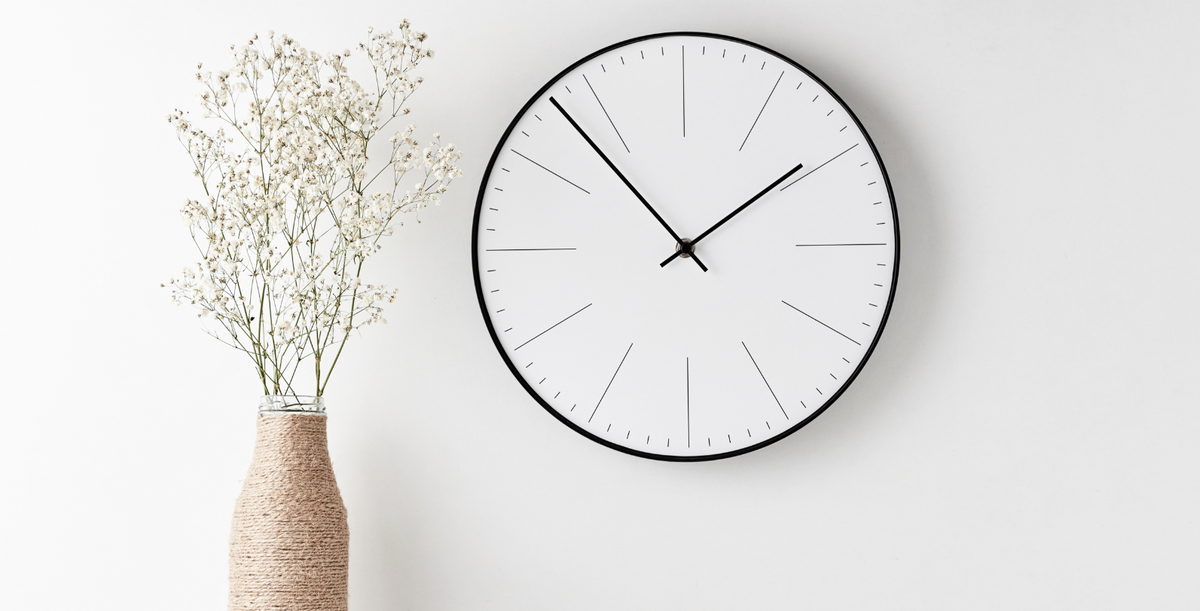
The Daylight Savings Debate
|
|
Time to read 3 min
This Sunday, the 2nd of April marks the end of Daylight Savings Time in New Zealand and Australia. That means clocks will fall back one hour. And yes, you’ll get an extra hour of sleep.
Many people love the long evenings Daylight Savings provides. This begs the question: why not scrap the twice-annual clock switching and make Daylight Savings a year-round affair?
That’s exactly what they’re doing over in the States. Last year, the US Congress passed a bill to make Daylight Savings Time permanent1. And they’re not the only ones. In March 2019, The European Parliament voted in favour of sticking with Daylight Savings Time.
But here’s the thing. Scientists who study biological timing say switching to Daylight Savings is a terrible idea2,3. In fact, they think we should bin it all together, instead opting for Standard Time year-round2,3.
The reason scientists are opposed to Daylight Savings is that regardless of what time we set our clocks to, our bodies set their biological rhythms with the sun. Normally the distinction between sun’s position (solar time) and what our clocks say (social time) doesn’t matter much because they’re pretty close. For example, in Sydney, Australia, when the clock reads midday, the sun is at its highest point in the sky. At least, that’s the case for half the year when standard time is observed. When Daylight Savings time is in place, the gap between social and solar time grows to an hour.

Daylight Savings puts us in a state of subtle yet perpetuate jet lag.
Our health and Daylight Savings
An hour might not sound like much. But more and more studies show the bigger the misalignment between our social and biological clocks, the greater the toll it takes on our health. We’re talking decreased live expectancy4, reduced sleep5, mental and cognitive problems6, increased risk of obesity7. The list goes on.
And here’s where it gets interesting. In almost half of the population, their biological clock is already running more than one hour behind social time. Those of us working indoors struggle to get enough sunlight during the day, and we’re exposed to increasing levels of blue light at night, pushing our biological clocks back. Daylight Savings deepens the problem, by pushing social time yet another hour in the opposite direction.
Sean Cain PhD, a circadian biologist and President of the Australasian Chronobiology Society8 , put it in no simpler terms when he wrote;
"Most people have the experience of getting up at 4 am - 5 am to catch an early flight. It feels awful, wrong. How would you feel about doing that every day for half the year?"
If Daylight Savings Time is so bad for us, why do we like it? In New Zealand we love it so much that we extended Daylight Savings Time by a few additional weeks in 2007, and a year later 82% of New Zealanders said they approved of the change.
If we were being cynical, we might say, “People don’t know what’s good for them. That’s why they like sugary drinks, fatty food, alcohol, and yes, Daylight Savings.”
But I think that it goes much deeper. As humans, we crave natural light. Research shows that more exposure to sunlight during the day makes people happier9,10, more focused, and improves sleep11. And lots of people aren’t getting enough. So, after spending the day inside a dimly lit office, an extra hour of much-needed sunlight really brightens your day (excuse the pun.)

But—and I don’t mean to state the obvious here—Daylight Savings Time does not actually make the days any longer. That would require slowing the earth’s rotation.
Basically, Daylight Savings solves a problem. It gives you the chance to get more sunlight after work. But it has nasty side-effects. Namely, it puts you in a state of mild yet perpetual jet lag. And there are better ways to solve the problem at our disposal.
First, if people want to start and finish work earlier, let them. That’s essentially what we’re all doing during Daylight Savings. If the pandemic has taught us anything, it’s that we don’t all have to be in the same office at the same time to get work done. But this kind of decision should be made at an individual level—not changing the nation's time.

Second, we need to bring the benefits of natural light into our workspaces, improving alertness and supporting realigning our circadian clocks. Why should you finish the day feeling so light-deprived in the first place? We have the lighting technology to mimic sunlight. It’s time to start implementing it.
So when we switch our clocks back this Sunday, let’s do it for the last time. Let’s ditch Daylight Savings.
